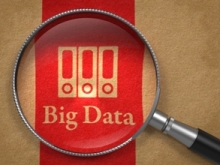We are in an ever expanding marketplace!!! With shorter product life-cycles, evolving customer behavior and an economy that travels at the speed of light and Information (which we now have more than enough access to) has gone on to be more about analytics and business relevance. So what do you do with your gold mine of insights?Here are Top 10 open source big data tools that are the best in the market to harness, analyze and make the most sense out of Big Data.
- Hadoop: You simply can’t talk about big data without mentioning Big Data Hadoop – The Apache distributed data processing software is so pervasive that sometimes the terms “Hadoop” and “big data” get used synonymously. Hadoop is known for the ability to process extremely large data in both, structured and unstructured formats, reliably replicating chunks of data to nodes in the cluster and making it available locally on the processing machine. Apache Foundation also sponsors a number of related projects that extend the capabilities of Big Data Hadoop.
- MapReduce: If Hadoop is the big data mahout, then MapReduce happens to be its lifeline. As a programming model and software framework for writing applications, MapReduce works to rapidly process vast amounts of data in parallel on large clusters of compute nodes. Widely used by Hadoop and as well as many other data processing applications,MapReduce was originally developed by Google!
- GridGain: GridGain is a Java based middleware for faster in-memory processing of Big Data in real time. GridGain is compatible with the Hadoop Distributed File System. GridGain requires Windows, Linux or Mac OS X operating system. It offers an alternative to MapReduce.
- HPCC: It is developed by LexisNexis Risk Solutions, HPCC is short for “high performance computing cluster”. HPCC Systems delivers on a single platform, a single architecture and a single programming language for data processing. Both, free community versions and paid enterprise versions are available. HPCC claims to offer superior performance than Hadoop.
- Storm: Storm is different from other tools with its distributed, real-time, fault-tolerant processing system, unlike the batch processing systems of Hadoop. With real-time computation capabilities, Storm is fast and highly scalable, often being described as the “Hadoop of real-time”. Storm is fault-tolerant and works with nearly all programming languages, though typically Java is used. Descending from the Apache family, Storm is now owned by Twitter
- Cassandra: It is a highly scalable NoSQL database to monitor massive data across multiple data centers and the cloud. Apache Cassandra is used by many organizations with large, active datasets, including Netflix, Twitter, Urban Airship, Constant Contact, Reddit, Cisco and Digg. Its commercial support and services are available through third-party vendors. Originally developed by Facebook, it is now managed by the Apache Foundation.
- HBase: It is the non-relational data store for Hadoop. Being a column-oriented database management system, HBase is well suited for sparse data sets and is written in Java. Supports writing applications such as Avro, REST and Thrift. Its features include: linear and modular scalability, strictly consistent reads and writes, automatic failover support and much more. Developed as part of the Apache Hadoop project, HBase runs on top of Hadoop distributed file system.
- MongoDB: MongoDB was originally developed by 10gen, and was designed to support humongous databases. It’s a NoSQL database written in C++ with document-oriented storage, full index support, replication and high availability, whichscales horizontally without compromising on functionality. Commercial support is available through 10gen MongoDB. It is literally derived from the term ‘humongous’ and is the most popular NoSQL database system.
- Neo4j: It boasts performance improvements of up to 1000x or more when in comparison with relational databases. Stores data structured in graphs instead of tables and is a disk-based, fully transactional Java engine. Organizations can purchase advanced and enterprise versions from Neo Technology Developed by Neo Technologies, which is the world’s leading graph database.
- CouchDB: CouchDB stores data in JSON documents that can be accessed via the web or query using JavaScript. It offers distributed scaling with fault-tolerant storage. Its Key featured include: On-the-fly document transformation , real-time change notifications, easy-to-use web administration.








